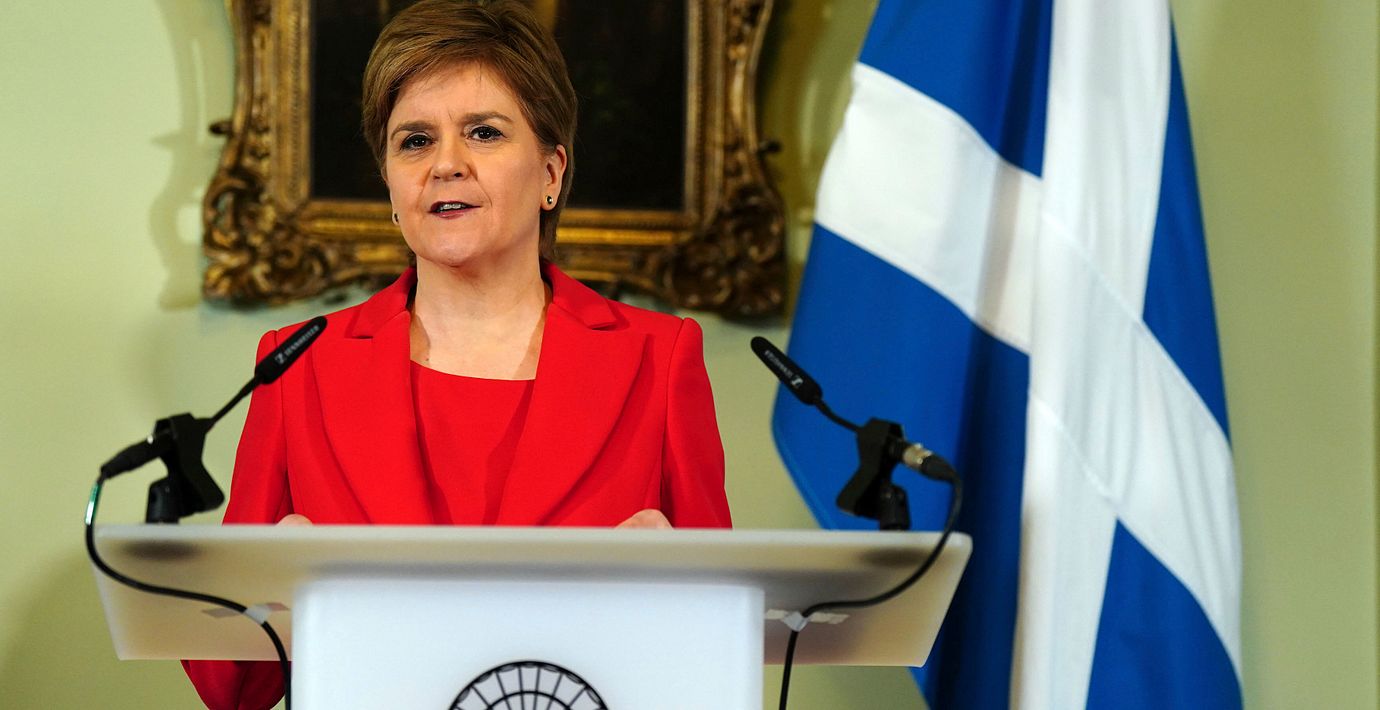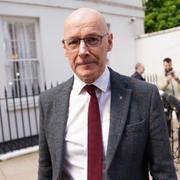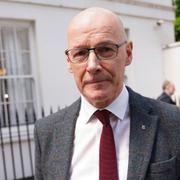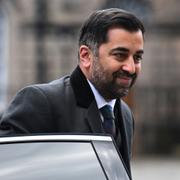
Skottlands regeringschef Nicola Sturgeon avgår
Skottlands försteminister Nicola Sturgeon avgår efter mer än åtta år på posten. Det bekräftar hon på en pressträff efter att nyheten läckt ut till brittiska medier.
– Det är rätt tid för mig att lämna, säger Sturgeon och tillägger att hon kommer att fortsätta inom politiken.
Sturgeon har den senaste tiden lidit flera politiska bakslag. Bland annat kom nyligen ett beslut från Storbritanniens högsta domstol som stoppade planerna på en ny folkomröstning om skotsk självständighet.
– Mitt beslut baseras på en längre utvärdering. Jag har brottats med det här i flera veckor.
52-åringen är den person som varit skotsk regeringschef under längst tid.
bakgrund
Nicola Sturgeon
Wikipedia (en)
Nicola Ferguson Sturgeon (born 19 July 1970) is a Scottish politician serving as First Minister of Scotland and Leader of the Scottish National Party (SNP) since 2014. She is the first woman to hold either position. She has been a member of the Scottish Parliament (MSP) since 1999, first as an additional member for the Glasgow electoral region, and as the member for Glasgow Southside (formerly Glasgow Govan) from 2007.
Born in Ayrshire, Sturgeon is a law graduate of the University of Glasgow, having worked as a solicitor in Glasgow before her election to the Scottish Parliament in 1999. She served successively as the SNP's shadow minister for education, health, and justice. In 2004, Sturgeon announced she would stand as a candidate for the leadership of the SNP, however, she later withdrew from the contest in favour of Alex Salmond, standing instead as depute (deputy) leader on a joint ticket with Salmond. Both were subsequently elected, and as Salmond was still an MP in the British House of Commons, Sturgeon led the SNP in the Scottish Parliament as Leader of the Opposition from 2004 to 2007. The SNP won the highest number of seats in the Scottish Parliament in the 2007 election and Salmond was subsequently appointed first minister. He appointed Sturgeon as Deputy First Minister and Cabinet Secretary for Health and Wellbeing. As Health Secretary, she scrapped prescription charges and was widely recognised for her handling of the 2009 swine flu pandemic. The SNP won a landslide majority in 2011 and a year later Salmond appointed her as Cabinet Secretary for Infrastructure, Capital Investment and Cities. In her new role Sturgeon oversaw the legislative process for the 2014 referendum on Scottish Independence and she was in charge of the SNP's referendum campaign.
Following the defeat of the Yes Scotland campaign in the referendum, Salmond resigned and Sturgeon was elected unopposed as SNP leader in November 2014 and appointed as first minister. Sturgeon led the SNP through the 2015 general election when it enjoyed a surge in support, recording a number of swings of over 30% from Labour, as it won 56 of the 59 Scottish seats and replaced the Liberal Democrats as the third-largest party in the British House of Commons. In the 2016 election, the SNP was returned as the largest single party in the Scottish Parliament but fell two seats short of a majority. Sturgeon secured a second term as first minister, forming an SNP minority government. In her second term, she oversaw more taxation powers, including the introduction of the Scottish National Investment Bank and Social Security Scotland. Sturgeon led the Scottish Government's response to the COVID-19 pandemic in Scotland, implementing a series of restrictions on social gatherings and rolling out the vaccine programme. The SNP gained a seat in the 2021 Scottish Parliament election, winning 64 seats, but fell one seat short of a majority. Sturgeon's government subsequently entered a power-sharing agreement with the Scottish Greens. On 25 May 2022, Sturgeon became the longest-serving First Minister of Scotland, surpassing the previous record held by her predecessor.Politically, Sturgeon has campaigned in favour for Scottish independence. In the 2016 UK referendum on European Union membership, voters in Scotland voted by 62% to remain in the European Union, despite Brexit receiving 52% of the vote across the UK. Both before and after the vote to leave the EU, Sturgeon's government has repeatedly advocated for a second referendum on independence. She has made several demands for a Section 30 order, however, they have been declined by both Theresa May and Boris Johnson, with Liz Truss stating she would "ignore" Sturgeon's future requests. In June 2022, Sturgeon launched her government's campaign for a second referendum to be held on 19 October 2023, subject to UK Supreme Court ruling. On November 23, 2022, the UK Supreme Court ruled the Scottish government cannot hold an independence referendum without the UK government's consent. Sturgeon is expected to announce her resignation on 15 February 2023.
Omni är politiskt obundna och oberoende. Vi strävar efter att ge fler perspektiv på nyheterna. Har du frågor eller synpunkter kring vår rapportering? Kontakta redaktionen



